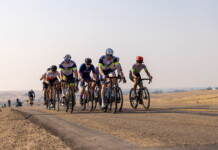November 1, 2012
By Jared Eborn
When an empire is built upon a lie – or, perhaps, a decades-long series of lies – its fall is loud and the impact profound.
For Lance Armstrong – the no-longer 7-time winner of the Tour de France and once the poster child for succeeding against all odds – the crumbling of his empire came after years of denials and more than 1,000 pages of evidence compiled by the United States Anti-Doping Agency.
And when USADA banned Armstrong from competing in the sport of cycling, it broke apart what is now believed to be a systematic program of doping, intimidation, bullying and cheating on a scale professional sport may have never seen before.
In its wake, the world of professional cycling is left trying to recover, trying to cope, trying to heal.
Heck, even the world of casual cycling fans and weekend recreation riders are trying to come to grips with the startling news – years long in the build up – that Armstrong had been declared guilty of doping by USADA and that the International Cycling Union (UCI) was agreeing to ban the iconic athlete from the sport for life and strip him off virtually all important cycling results following his seemingly miraculous recovery from cancer in the late 1990s.
It is a downfall that undoubtedly shattered many dreams.
“Yes, sad and tragic is right. Tragic for many people who were hurt by his fraud including athletes who raced without breaking the rules and would have won the Tour de France or had much better careers if it wasn’t for the widespread doping that Lance played a big role in orchestrating,” said Mark Zimbelman, a BYU business and accounting professor specializing in fraud and a highly-competitive cyclist himself. “Sad for donors and cancer victims who believed in him and got inspiration from him and didn’t realize his life was a massive lie. Sad for his family and, especially, his kids who will have to reconcile this fraud for the rest of their lives. Sad for Lance too since he must be either a very miserable person or living completely out of touch with reality in a cold, cruel world that I can’t imagine.”
After years of rumors and allegations, Armstrong’s past finally caught up to him when, under oath in a federal court, several of his past teammates – primarily those who race with and supported him while at the U.S. Postal Service team – confessed to their own history of using performance enhancing drugs and other activities against the rules of the sport. In doing so, those cyclists, team members and support staff painted a damning picture of the generally suspected but rarely seen world of the sport at its highest levels.
“On the other hand, there is a lot to be happy about. I’m happy for the people Lance tried to quiet over the years and who now are getting some closure to his abuse,” said Zimbelman, who has written extensively about doping in sports and Armstrong at his blog (fraudbytes.blogspot.com). I’m happy for the people Lance sued when they claimed he doped who may be able to get their millions back from him. I’m also happy that more people won’t think a fairy tale is reality and that Lance won’t get away with taking more from others. I’m also happy that light is shining brightly on the doping problem in pro cycling so that this great sport may get its act together and become something more than cycling’s equivalent of World Wide Wrestling.”
According to the evidence presented by USADA, Armstrong is guilty of not only being a serial cheater, but of intimidating and bullying his teammates into cheating with and for him and also of threatening, vilifying and attacking those who dared to stand up to him, or even stand up for themselves, in any way.
Well-documented battles with Greg LeMond – now the only American to have ever won the Tour de France – Frankie Andreau, Floyd Landis, Tyler Hamilton and numerous others have painted a picture of an Armstrong more sociopath than champion.
USADA chief Travis Tygart assembled an overwhelming list of evidence against Armstrong. With testimony from numerous cyclists – including several who, like Armstrong, had never been officially tested positive for PEDs – Armstrong’s legend, and career, unraveled page by page in the USADA files. In the process, the legacy of many riders has been shattered – to what extent remains to be seen.
“The most critical evidence assembled by USADA and discussed in this Reasoned Decision has come from Mr. Armstrong’s former teammates and former employees of the United States Postal Service (“U.S. Postal Service” or “USPS”) and Discovery Channel cycling teams who decided that it was the right thing to do for clean sport to come forward and provide evidence to USADA regarding what they knew,” USADA wrote in a lengthy summary of the 1,000-plus page file of evidence. “As a consequence of a number of courageous riders willingness to break the Code of Silence—the “Omerta”—after being approached by USADA, by late May 2012 USADA concluded it had more than enough evidence to proceed with charges against former USPS and Discovery Channel Team Director Johan Bruyneel, former USPS and/or Discovery Channel doctors Pedro Celaya, Luis Garcia del Moral and Michele Ferrari and Team Trainer Jose “Pepe” Marti and against Mr. Armstrong.” More will no doubt be revealed this winter as Bruyneel’s case will go to arbitration.
Through the investigation, Armstrong chose to not speak with USADA, instead issuing numerous denials through his attorneys.
“USADA also reached out to Mr. Armstrong, communicating with four of his attorneys and giving Mr. Armstrong the opportunity to come in and sit down with USADA and cooperate with USADA’s investigation as had many of Mr. Armstrong’s teammates. Mr. Armstrong, however, refused to meet with USADA, setting in motion the sequence of events that led to USADA’s charges and ultimately to Mr. Armstrong’s sanction by USADA in accordance with the rules.”
Professionals with Utah connections Levi Leipheimer and David Zabriskie – both former Armstrong teammates at US Postal – confessed to doping in the past and received 6-month bans along with a variety of other punishments ranging from past results being stripped from their records to withdrawing from consideration to represent the United States at the 2012 Olympic Games or World Championships.
For Armstrong, the punishments were much more severe. In addition to the public shaming, the one-time king of cycling had his seven wins at the Tour de France removed from the record books. Sponsor after sponsor issued press releases announcing they were several ties and voiding contracts with the disgraced cyclist.
Even the world governing body of cycling – which is itself under intense scrutiny for having watched, seemingly unable to prevent it, as doping became a pervasive part of the sport – cast its superstar to the curb.
“Lance Armstrong has no place in cycling, and he deserves to be forgotten in cycling,” Pat McQuaid, the UCI president long thought to be in league with Armstrong, said. “Make no mistake, it’s a catastrophe for him, and he has to face up to that.”
Dr. Massimo “Max” Testa, the current BMC Pro Cycling team doctor and the team doctor of the Motorola squad Armstrong began his professional career with, said he is happy to see what he hopes will be a change in direction for the sport.
“In those years in which doping was very prevalent, and I would say not just in cycling, those were years in which there were products on the market that would improve performances and were not detectable. A kind of wrong culture developed,” he told the Deseret News. “The phenomenon was so widespread that you were just putting yourself on the same starting line as other people.”
Efforts by Cycling Utah to reach Testa, who now calls the Beehive State home and works for IHC, for a more detailed interview to discuss his past role with Armstrong and other cyclists, were unsuccessful.
After the USADA files were released, Armstrong has said precious little about the situation. Aside from changing his Twitter bio to remove the reference to winning the Tour de France, the prolific social media user has gone essentially silent. At the 15-year anniversary of his LiveStrong charity, Armstrong vaguely referenced the scandal in an address to his most loyal supporters, saying he’d had a rough couple of weeks, but has said very little publicly since USADA released the volumes of evidence.
Regardless, there is an undeniable shockwave felt through the peloton of cyclists, fans and observers.
Sponsors, citing the negative climate surrounding sport as a result of the pervasive doping, have dropped out of the sport. Athletes, from the highest level to neo-pros are struggling to find jobs with professional teams.
And fans are casting an even more cynical eye to a sport whose cloak of silence and secrecy has been ripped away.
Where the sport goes from here is up for debate.
Unlike Armstrong’s doping past.










